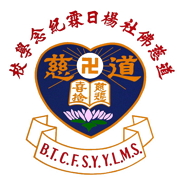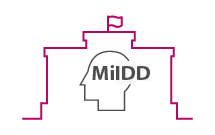
Buddhist To Chi Fat She Yeung Yat Lam Memorial School

School for Children with
Mild Intellectual Developmental Disorder
(The following information is provided by the school.)
Background
In 1967, Buddhist To Chi Fat She became a school sponsoring body and started establishing schools to provide educational services for the communities. In 1982, Buddhist To Chi Fat She Memorial School was founded in Kwai Hing Estate and then moved to Lei Muk Shue Estate in 1988. Four years later, a branch school was opened in Au Tau, Yuen Long. In 1994, the school was moved to Tin Shui Wai and has started to provide comprehensive special educational services for students and families who are in need.
Our school is an aided special school for children with mild intellectual developmental disorder. “Brahmavihara” is the school motto, the school is committed to promote the values of “Caring & Love”, “Sympathy & Compassion”, “Happiness & Help” and “Equality & Sharing”. The school mainly provides services to the families and schools in Yuen Long and Tin Shui Wai districts, teaching students from Primary 1 to Secondary 6.
Highlights
Since 2018, one of the school’s main concerns focused on promoting the “student-centered autonomous learning model to arouse students’ initiative and improve their learning effectiveness".
The school believes that all students have the rights to receive proper education, regardless of their abilities or disabilities. Students learned how to live independently, to make choices in their life, to plan for their career and future, and how they should contribute to the society. Therefore, as educators in the 21st century, education should be student-centered. It is necessary to focus on providing students with different learning experiences, to give them more opportunities for autonomy and to assist them in constructing their own learning abilities in order to equip them to become lifelong learners.
In order to build a learning and teaching ecology of “student-centered learning”, the school has planned various strategies and implementations in three aspects:
1. Teacher level
To establish a learning community through co-planning and co-teaching. Through supports of experienced teachers, classroom observations, resources and curriculum developments and professional developments, teachers can explore and discuss the implementation strategies of "student-centered learning".
To practice “structured-classroom teaching process” by applying the principle of “student-centered learning” as the framework and citing the self-learning research by Professor Nancy Law of the University of Hong Kong. The school introduces the elements of “self-directed learning” into the teaching framework and lessons, for example, “goal setting”, “self-planning”, “self-monitoring”, “self-evaluation” and “self-revision”, to enhance students’ self-consciousness of learning autonomous, so as to plan, monitor and reflect on their own learning.
2. Student level
To assist students in constructing self-learning abilities in a gradual manner, including self-management skills, IT skills, communication skills, collaboration skills, planning and decision-making skills, and reflection skills, to enhance their learning autonomy.
3. School environment level
To construct a diversified self-learning environment and opportunities, by different classroom settings and the display of learning achievements, for example, the “Honour Award Scheme”, “Self-study QR code display”, “Self-learning Corner” and “Structured-learning Station”. These facilities help create a school-wide self-learning atmosphere.
COVID-19 pandemic, which started in the beginning of 2020, has become the most unforgettable challenge among the past three years. The school adapted to a new learning mode, where students are required to practice "self-directed learning" daily. Fortunately, teachers have already equipped students with self-directed learning skills, so that students can be responsible for their learning and be autonomous in planning, choosing and managing their learning directions. This proves that life-learn learning ability is essential for 21st century citizens. Meanwhile, as an educator for students with special educational needs, it is necessary for the school to take the “whole-person development” and “life-long learning” as the education visions.






